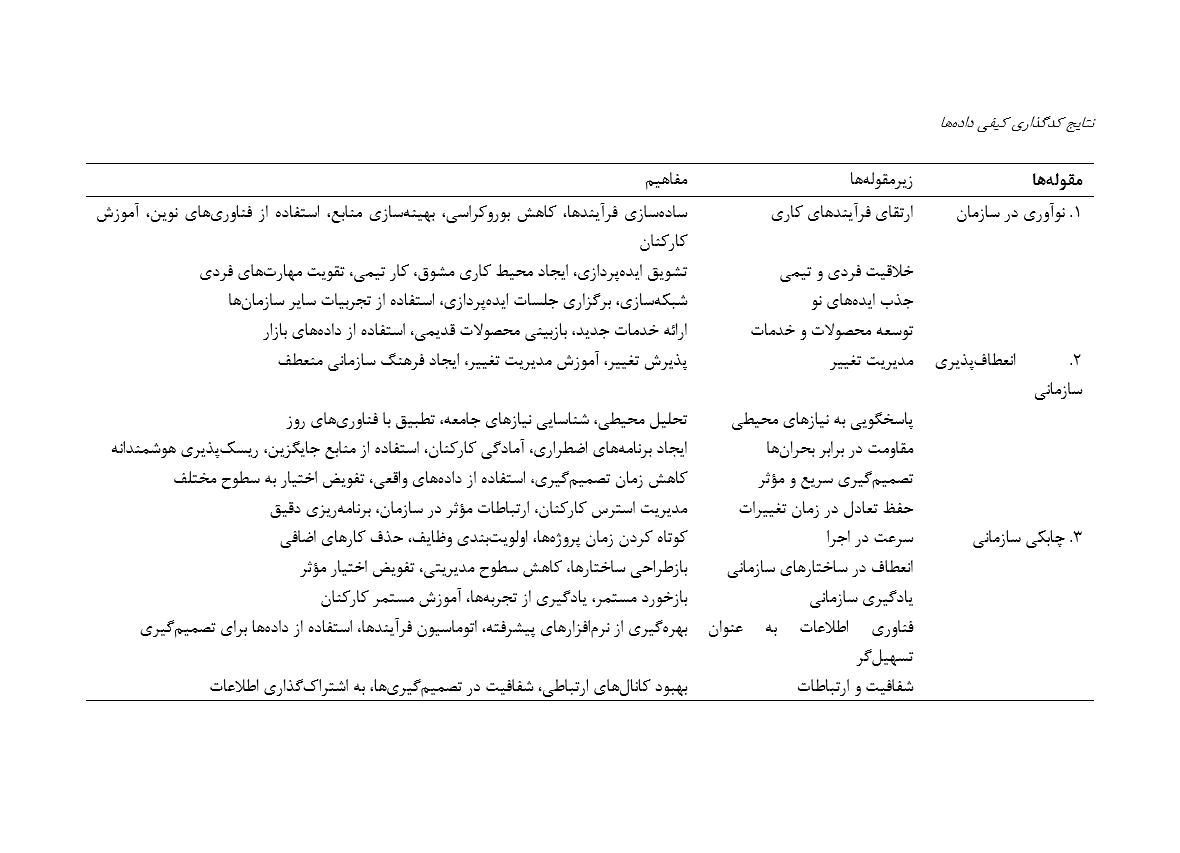The Role of Knowledge Absorption in Innovation, Resilience, and Agility of Organizational Units in the Islamic Republic of Iran Broadcasting: A Qualitative Study
Keywords:
Knowledge absorption, innovation, organizational resilience, agility, media organizations, qualitative research, IRIBAbstract
This study aims to investigate the role of knowledge absorption in fostering innovation, organizational resilience, and agility in the Islamic Republic of Iran Broadcasting (IRIB) through a qualitative approach. The research employed a qualitative exploratory design, utilizing semi-structured interviews to collect data. The participants included 26 managers and senior experts from IRIB in Tehran, selected using purposive sampling until theoretical saturation was achieved. Data were analyzed using qualitative content analysis and NVivo software, focusing on identifying themes and subthemes related to knowledge absorption, innovation, and agility. The findings highlighted three main themes: innovation, resilience, and agility, each influenced by the organization’s capacity to absorb and utilize knowledge. Subthemes of innovation included streamlining work processes, fostering creativity, and developing new products and services. Resilience was linked to effective change management, adaptability to environmental needs, and crisis resistance. Agility was found to depend on quick execution, structural flexibility, and continuous learning. Knowledge absorption emerged as a central enabler, facilitating the integration of new ideas, enhancing adaptability, and driving innovative initiatives. Challenges such as bureaucratic hurdles, inconsistent communication, and limited incentives were identified as barriers to achieving these outcomes. The study underscores the critical role of knowledge absorption in enhancing innovation, resilience, and agility in media organizations like IRIB. By addressing structural, cultural, and managerial barriers, the organization can better adapt to environmental changes and maintain its competitive edge. The results provide actionable insights for fostering a learning-oriented culture and adopting flexible, innovation-driven practices.
Downloads












